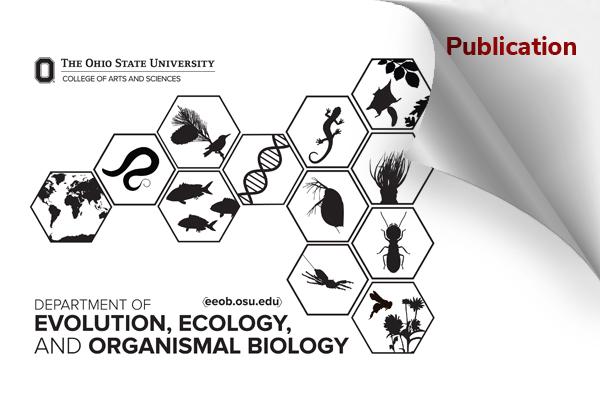EEOB Publication - Hellmann

Predator-induced transgenerational plasticity of parental care behaviour in male three-spined stickleback fish across two generations
Jennifer K. Hellmann†, Jason Keagy†, Erika R. Carlson, Shayne Kempfer and Alison M. Bell. 10 January 2024. Volume 291. Issue 2014.
Abstract
Parental care is a critical determinant of offspring fitness, and parents adjust their care in response to ecological challenges, including predation risk. The experiences of both mothers and fathers can influence phenotypes of future generations (transgenerational plasticity). If it is adaptive for parents to alter parental care in response to predation risk, then we expect F1 and F2 offspring who receive transgenerational cues of predation risk to shift their parental care behaviour if these ancestral cues reliably predict a similarly risky environment as their F0 parents. Here, we used three-spined sticklebacks (Gasterosteus aculeatus) to understand how paternal exposure to predation risk prior to mating alters reproductive traits and parental care behaviour in unexposed F1 sons and F2 grandsons. Sons of predator-exposed fathers took more attempts to mate than sons of control fathers. F1 sons and F2 grandsons with two (maternal and paternal) predator-exposed grandfathers shifted their paternal care (fanning) behaviour in strikingly similar ways: they fanned less initially, but fanned more near egg hatching. This shift in fanning behaviour matches shifts observed in response to direct exposure to predation risk, suggesting a highly conserved response to pre-fertilization predator exposure that persists from the F0 to the F1 and F2 generations.
